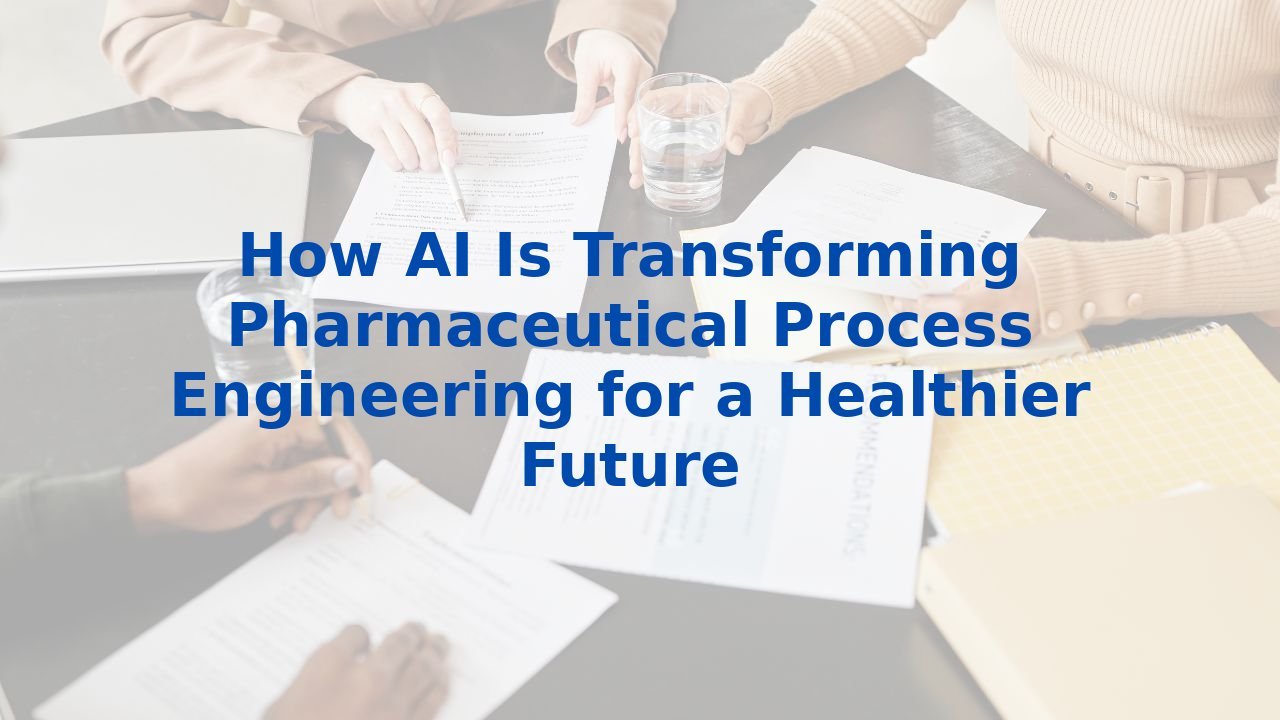How AI Is Transforming Pharmaceutical Process Engineering for a Healthier Future
The Transformative Role of AI in Pharmaceutical Process Engineering
The pharmaceutical industry is at a crossroads, where the relentless pursuit of innovation intersects with the pressing demand for efficiency and safe production practices. In this landscape, the role of pharmaceutical process engineering has emerged as both pivotal and transformative. AI technologies are becoming instrumental in revolutionizing these processes, making it possible to produce the next generation of life-saving medications with greater efficiency and effectiveness.
Optimization: Enhancing Process Efficiency
At the core of pharmaceutical process engineering lies optimization. From the very first batches of drug formulations to scaling up production, the focus is on refining every step of the process. This is where AI shines. Utilizing machine learning algorithms, engineers can analyze and identify patterns in production data that were previously obscured to the human eye. This intelligent insight can lead to enhanced yield, reduced waste, and improved quality standards.
“The beauty of AI in optimization is its capacity to make real-time adjustments, minimizing human error and maximizing resource utilization.”
Scale-Up: Bridging Lab and Mass Production
Moving from lab-scale formulations to large-scale production is a complex challenge filled with hurdles that can impede the effectiveness of a new drug. Here, AI acts as a bridge, providing predictive analytics that help process engineers simulate potential outcomes. By employing AI-driven modeling tools, teams can foresee operational bottlenecks and devise optimized configurations that facilitate smooth scaling without sacrificing quality or safety.
Driving Innovation through Advanced Technologies
Innovation is the backbone of pharmaceutical advancements, and AI is the catalyst fueling this progress. The integration of cutting-edge technologies such as continuous manufacturing and advanced analytics allows for quicker decision-making and accelerated timelines in drug development. With AI's predictive capabilities, pharmaceutical companies can bring therapies to market faster, reducing time and costs while ensuring the safety and efficacy of each product.
“Adopting AI technologies is not just about keeping pace with the industry; it’s about setting the pace.”
Ensuring Regulatory Compliance
The pharmaceutical landscape is heavily regulated, and maintaining compliance is non-negotiable. This is where AI proves its invaluable role again. By automating compliance checks and continuously monitoring production processes, AI reduces the likelihood of human error and ensures that stringent regulatory guidelines are met consistently. This not only protects patients but instills confidence in the manufacturing process.
The Future: Challenges and Opportunities
The conversation surrounding pharmaceutical process engineering is not static; it is dynamic and evolving. As we advance, the integration of AI necessitates collaboration across various disciplines—from chemistry to data science. These collaborative efforts will spur the next wave of breakthroughs in healthcare.
Preparing Employees for an AI-Powered Future
Integrating AI into operational processes is only part of the equation. To fully reap the benefits, organizations must invest in training their employees for this new landscape. Training programs that focus on AI competencies become essential in empowering the workforce with the skills needed to navigate this rapidly evolving environment. By equipping employees with AI knowledge, companies not only enhance their operational efficiency but also foster a culture of continuous learning and innovation.
Effective training programs can cover a range of topics, from data science fundamentals to hands-on machine learning applications, ensuring that every team member can contribute meaningfully to the company's vision. As these employees become knowledgeable about AI, they will drive progressive changes within the organization, making them invaluable assets in overcoming challenges and harnessing opportunities.
Conclusion: Shaping the Future of Medicine
The realm of pharmaceutical process engineering is poised for growth, fueled by the integration of AI technologies. As we continue to push the boundaries of what is possible, the opportunities for innovation and improvement are boundless. By embracing AI, engaging in continuous optimization, and investing in employee training, we can collectively shape a future that promises not only to enhance the efficiency of pharmaceutical processes but also to transform the landscape of healthcare itself.
Let's foster a collaborative environment dedicated to innovation and quality, pushing the limits of pharmaceutical engineering and elevating the standards for patient care.



